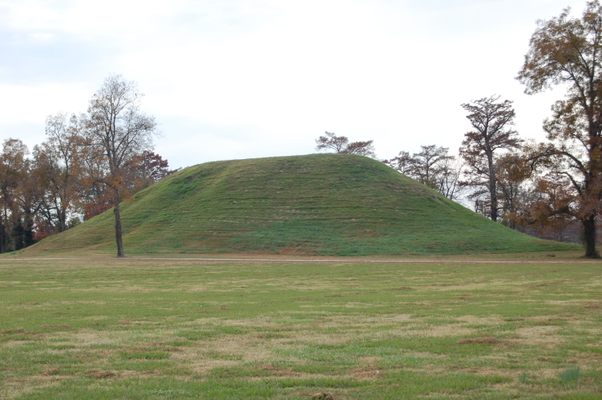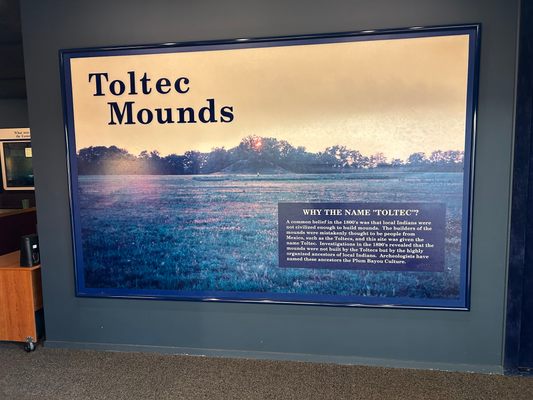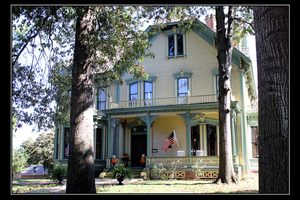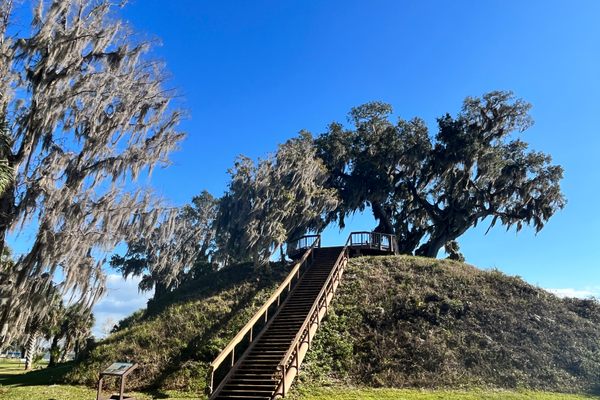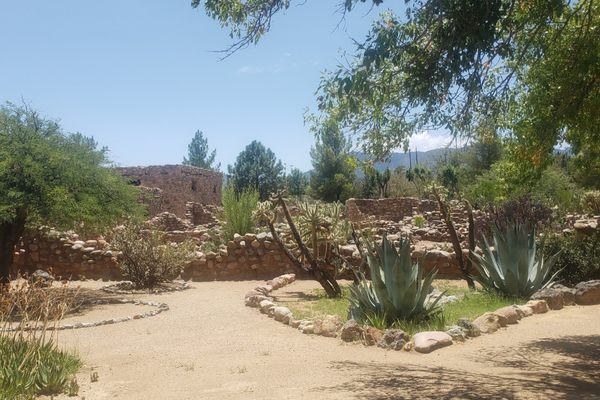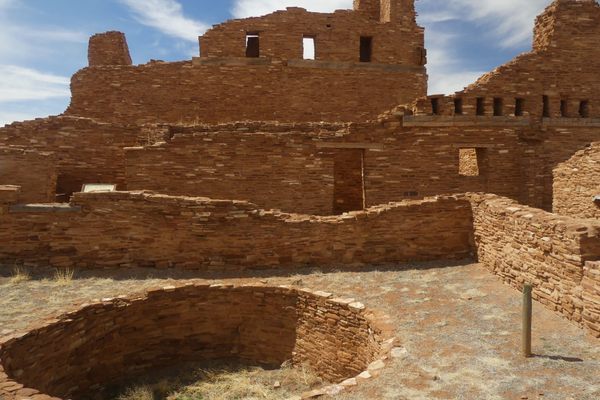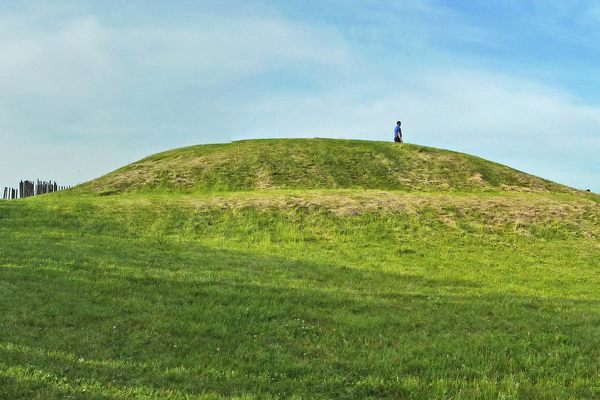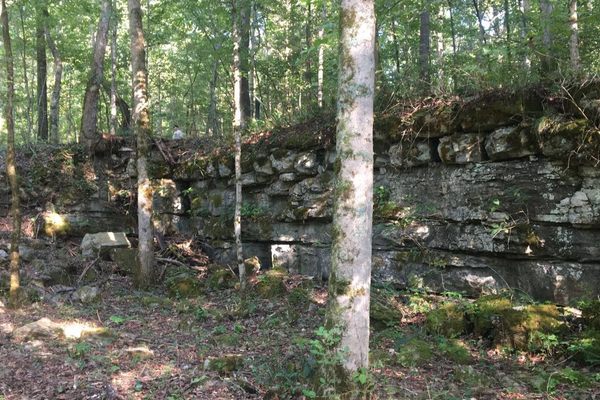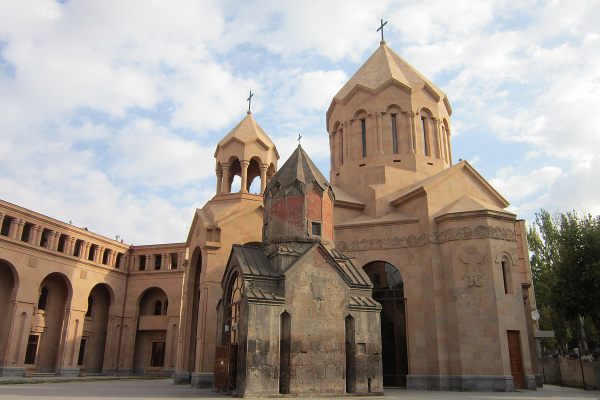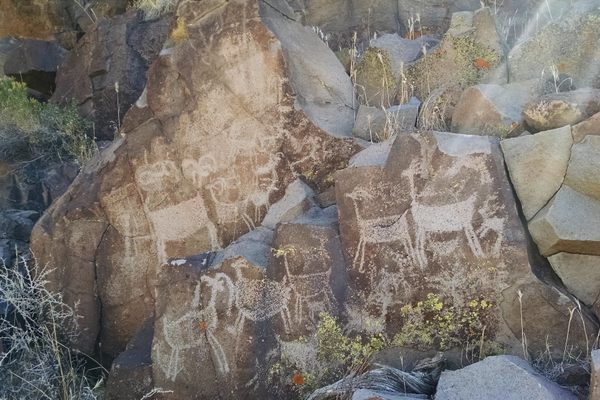About
Some 1,400 years ago, the Indigenous peoples of the Plum Bayou culture came together to build earthen mounds in what is now known as Arkansas. These mounds, which reach as tall as 49 feet, were built by hand for religious, political, ceremonial, and cosmological purposes. Archaeologists determined that one of the mounds was a feasting mound based on the number of animal bones extracted from the site. Another mound was a burial site. Flat mounds would be topped with buildings; Some mounds likely housed religious leaders. The structures are positioned to align with the sun at sunrise.
The mounds take their name from a mistake. A former owner of the land thought the mounds belonged to the Toltec Indians from Mexico. The truth, however, is that Indigenous mound-building cultures long reigned over the Mississippi River Valley and Great Lakes regions. The Toltec Mounds are the largest existing mounds in the state of Arkansas.
Around 1050, the Plum Bayou people abandoned the site for reasons unknown. In the coming centuries, Mississippian people continued to use the site for rituals and burials. In 1973, the area was placed on the National Register of Historic Places, and in 1980 it opened as an Arkansas State Park. The park's name was recently corrected to "The Plum Bayou Mounds Archaeological State Park."
Related Tags
Know Before You Go
The Toltec Mounds are located in the more appropriately-named Plum Bayou Mounds Archaeological State Park. The park is open Wednesday-Saturday from 8 a.m.-5 p.m. and on Sunday from 1 p.m.-5 p.m.
Published
November 10, 2022

